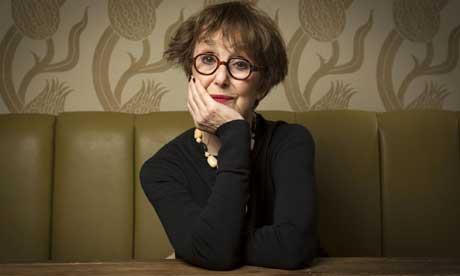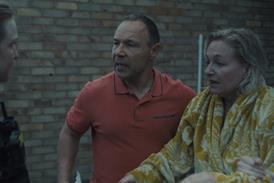“This show had everything: social history, a compelling narrative, genuine emotion, weird coincidences, and the charming Una Stubbs.” Read on for the verdict on last night’s TV.

Who Do You Think You Are?, BBC1
“This show had everything: social history, a compelling narrative extracted from photocopies of old documents, genuine emotion, weird coincidences, and the charming Una Stubbs. And yet, when I contemplate next week’s episode, with Nigel Havers, my heart still sinks a little.”
Tim Dowling, The Guardian
“This was a richly enjoyable story, with entertaining diversions into philanphropic industrialism and the garden city movement. A fair amount of the required weeping and exclamations of surprise too from our actress narrator-presenter but for once not seeming as if they were in there only to liven up a boring story.”
Matt Baylis, Daily Express
“There’s a promising start to this new series. Una Stubbs knows nothing of her paternal grandparents… What dark secret could be lurking in the local council archives? A convict for a great uncle? An entire second family in the next village over? The truth, it turns out, is more run of the mill, but the mystery at least distracted Una from the kind of luvvie reminiscence that has marred this show in the past.”
Ellen E Jones, The Independent
“Viewers had to wait until halfway through to reach the most interesting material, charting the story of Stubbs’s great grandfather Sir Ebenezer Howard, a Victorian stenographer from a relatively modest background who founded the garden city movement and personally oversaw the construction of Letchworth and Welwyn Garden City. The story of his campaign to build the towns was fascinating and merited a programme in itself – with no need for schmaltzy shots of family photo albums.”
Tom Rowley, The Telegraph
“The programme was mainly remarkable for Stubbs’ incuriosity. She had never questioned why she had not met her father’s parents nor looked into the story of her maternal great-grandfather, Sir Ebenezer Howard, the founder of the garden city movement. If the ever-youthful Stubbs were a cat, she might not be immortal but she would never get herself killed.”
Andrew Billen, The Times
“Highbrow television programmers have long boasted of their medium’s potential to bring high art to the uneducated masses. Speaking as an uneducated mass, it’s rarely been as successful as this… Rhodes’s experiment may have begun with humble ambitions, but, in practice, it’s more impactful than a thousand last nights at the Proms.”
Ellen E Jones, The Independent
“For a film that claimed to illustrate the power of music, it lingered too long on Rhodes’s journey and too little on its effect on the patients. The viewer was left to reach the depressing conclusion, as Rhodes lugged his Steinway out of the unit, that this was because it did not have the transformative effect he had hoped.”
Tom Rowley, The Telegraph
“Notes from the Inside was almost magically satisfying… The key to this programme was not the listeners, nor even the music, but the player… Rhodes strikes me as the Professor Brian Cox of music, and not just because he looks like a rock star.”
Andrew Billen, The Times
The Cafe, Sky 1
“It’s a deeply agreeable half-hour, but the whole thing remains too even-tempered for its own good. The dialogue is clever – often more admirable than funny – and the performances are top-notch, but the characters seem to share the writers’ reluctance to stir up any real trouble. I’m not suggesting comedy can only spring from conflict, but it’s hard to see how you can wrest many gags from such collective mousiness.”
Tim Dowling, The Guardian





























No comments yet